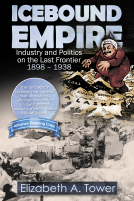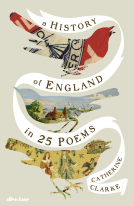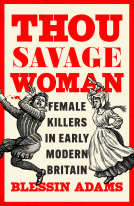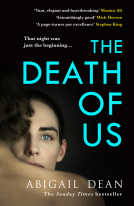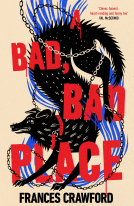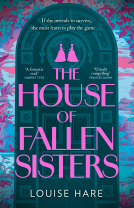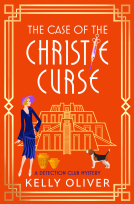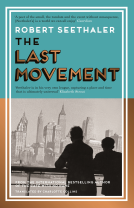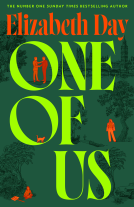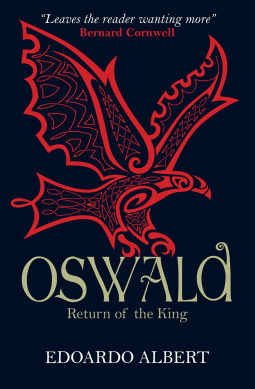
Oswald: Return of the King
by Edoardo Albert
This title was previously available on NetGalley and is now archived.
Send NetGalley books directly to your Kindle or Kindle app
1
To read on a Kindle or Kindle app, please add kindle@netgalley.com as an approved email address to receive files in your Amazon account. Click here for step-by-step instructions.
2
Also find your Kindle email address within your Amazon account, and enter it here.
Pub Date 15 May 2015 | Archive Date 4 Apr 2017
Lion Hudson Plc | Lion Fiction
Description
Advance Praise
"Splendid....leaves the reader wanting more." Bernard Cornwell
"A highly entertaining and refreshing work of historical fiction." Publishers Weekly
"Splendid....leaves the reader wanting more." Bernard Cornwell
"A highly entertaining and refreshing work of historical fiction." Publishers Weekly
Available Editions
| EDITION | Paperback |
| ISBN | 9781782641162 |
| PRICE | £7.99 (GBP) |
Average rating from 21 members
Featured Reviews
 Jo-anne A, Reviewer
Jo-anne A, Reviewer
After the death of the High King, Edwin, the North of Britain suffers through the looting and dominion of Cadwallon of Gwynedd and Penda of Mercia. There are claimants to the Throne of Northumbria but one by one these die. The great hope is Oswald, eldest son of Aethelfrith but living the life of a monk on Iona. Supported by his Christian brethren and his brother Oswiu, Oswald kills Cadwallon and banishes Penda, but his personal life is more complicated and Kings of Britain do not have a long life expectancy.
The tale of Oswald is interesting, a boy who saw his father killed in battle but grows up to be a devout Christian who would rather be a monk than a king. Again Albert spins a fictional tale around the few facts that are known. Here the conflict between the old religion and the newer Christianity are explored further but the violence and the uncertainty of power and blood ties makes for a more exciting narrative.
 M J P, Reviewer
M J P, Reviewer
Oswald, Return of the King is the first book I've read by the author.
Oswald is, unfortunately, a dense read that suffers with some pacing issues, but more than anything, is plagued by unnecessary and near constant Bible quotations. It would perhaps, have been better if the novel had been named after the monks of Lindisfarne or Iona, because the focus of the novel is not actually Oswald. The author has made great use of the work of Bede's Ecclesiastical History of the English People, (as must everyone who writes and studies about this time period), and I couldn't help thinking that Bede would have been overjoyed by the author's firm adherence to his ideas - to write a history of the Church - and not a history of the people throughout this period, but for myself, I felt that this detracted from what should have been an exiting read and instead descended into a long and tedious story about a highly fictionalised accounting of how Christianity was introduced to the Saxons of England. Christianity was a weapon, just like a warrior's sword, shield and spear, but the author, writing for a Christian Press, makes no reference to the political nature of the imposition of Christianity.
As to the story itself, Oswald does not become King of Bernicia until 48% of the book has passed, and then there is some definite fudging of events and dates which takes the reader to the final battle - or should I say 'finally a battle'. Until this point much has been made of the amassing of troops - but the Battle of Heavenfield, where Oswald gains his kingdom, is a disappointing fight between two men in a quarry, an amassing of troops at York slithers away as a truce is called, and Maserfield is the only battle that gets any ink - even the supposed overthrow of the Gododdin earns no more than the recall of a messenger reporting to his king.
This period of history is defined by its battles and its warriors, but this is a novel of saints and Christianity, and needs to be read with a clear understanding of what it is, and not what it could have been, or what a reader might well expect it to be.
The cover is, however, stunning!
 The Idle Woman ., Reviewer
The Idle Woman ., Reviewer
Having warmed to Albert’s "Edwin" in its second half, I was keen to follow the struggle for Northumbria into its next generation. Oswald opens in 633, with High King Edwin’s death in battle against Penda of Mercia, and Cadwallon of Gwynned. His fall throws his kingdom’s future into the balance as predators circle the vacant throne. Cadwallon would have Northumbria as a client kingdom, but there are still men living who have the right to rule as independent kings. These come from two rival families: the Yffings (descendants of Edwin) and the Idings (descendants of Edwin’s predecessor, Aethelfrith). And whoever becomes king must now face up to this new power that has grown, unchecked, in the west. Northumbria desperately needs a worthy leader, but the one who can best answer that call is, ironically, the one claimant who wants nothing less than to be a king.
Oswald, eldest son of Aethelfrith by his wife Acha (herself Edwin’s sister), has grown up in exile on the Holy Island of Iona, and has grown to believe that he could stay on the island and become a monk himself; but his wyrd lies on a different path. When news comes of Edwin’s death, and Cadwallon’s despoiling of Northumbria, Oswald is urged to return to his father’s kingdom and claim the throne – by his younger brother Oswiu; by the Abbot of Iona; and even by part of his own heart. For a while, Oswald hopes that the kingdom can be brought under the rule of another man: his older half-brother Eanfrith, perhaps; his cousin Osric; or maybe even his cousin Eadfrith, son of Edwin. But, one-by-one, these possibilities are extinguished. And then Oswald must face up to the greatest test of all: to find a way to rule without sacrificing his faith.
In this instalment, Albert delves more deeply into the contradictions that we’ve already seen developing in Edwin, between the message of peace and charity preached by the Christian faith and the pillage and gold-gifts expected of a strong king in Anglo-Saxon England. And it isn’t simply a question of paganism or Christianity: the Christians themselves are divided, between the monastery-based faith of the Britons and the new faith sanctioned by Rome, which focuses on the intercession of a priest.
The book isn’t all about religion though: there are plenty of finely-written battles, feasts, tricks and cunning stratagems. As you may remember, I had trouble warming to the characters in the first book, but found this sequel more engaging. Oswald’s struggle to reconcile the two halves of his life makes him more interesting than the inscrutable Edwin, and his relationships with his friend Aidan and his brother Oswiu bring depth and humanity to his characterisation. It isn’t absolutely perfect – Oswiu doesn’t develop much beyond ‘charming scapegrace’ (maybe he’s saving himself for the next novel), and the brothers’ light-hearted banter strikes an odd note against the sweeping grandeur of Albert’s usual prose. But it feels more human, more alive. And it isn’t just the heroes of the piece who work well. I was fascinated by the shrewd, subtle Penda who has clawed his way to prominence by his own merits and who prowls at the edge of the Northumbrian lands.
It can’t be easy to write a novel about someone who ended up being a saint, especially someone for whom so few sources survive, but Albert’s Oswald is a believable character: noble, conflicted and susceptible to concupiscence. The book flows much more easily than its predecessor, combining events from history and legend with an utterly convincing recreation of the time. And there are times when the writing could have been taken straight from an epic poem. From this point on, the history of Northumbria is beyond my ken until the 9th century, so I’m looking forward to seeing what the final book, Oswiu, has in store for me.
For the full review, please see my blog:
https://theidlewoman.net/2017/03/06/oswald-return-of-the-king-edoardo-albert/
 emma c, Reviewer
emma c, Reviewer
Fascinating evocation of the life of Oswald, in the violent times and conflicts that gave birth to the England we know today.
Before telling you more about this second book in the series, admire the beauty of the book cover, in the same style as the first book. Very classy, and the raven is actually an important character in the book.
The history of 7th century England can be quite complicated. It was a key period, where you have gathered together all the elements at the source of what England is today, with people coming from different countries, with a diversity in religion, mainly Christianity versus paganism, and all the small lords and kings fighting to get the power over bigger lands and kick out invaders from different latitudes.
So I really appreciated that the author started by recapitulating what happened in volume one. The detailed list of who is who, with the family relationships, was also extremely valuable. This is actually for me the type of things hard to follow only on an ebook, so I ended up printing a copy of the genealogy and was constantly looking at my paper while reading the ebook.
This book is basically the life of Oswald.
Edwin, King of England, (who had killed Oswald’s father) was just killed by Cadwallon of Gwynedd and Penda of Mercia. So the throne should now be Oswald’s, or Oswiu’s, his brother (much younger), or even Eanfrith’s, his half-brother, but he would much prefer enter the monastery.
As Cadwallon and Penda keep ravaging and plundering the country, the abbot thinks Oswald’s duty is for now to defend his people, so through Oswald’s friendship with the monk Aidan, he manages to convince him to fight for his kingdom instead.
But Cadwallon is powerful and intense – he thinks he is the new King Arthur. Will Oswald be able to retake the crown and bring safety to the land?
In those violent times, where it’s difficult to know who will join whom to fight, nothing is really assured.
We actually know very little about Oswald, only a few lines in Saint Bede‘s Ecclesiastical History of the English People. So it was fascinating to see how we could fill in the gaps. Edoardo Albert does it with mastery, especially in the context he recreates around the plot.
His characters are so well defined, you think you have met them in real life. A bit like in some Shakespeare’s tragedies with couple of secondary characters, the cute and sometimes hilarious relationship between the pagan priest Acca and Coifi, the Christian one, helped release the tension.
I also enjoyed a lot Oswald’s raven…
If you are interested in this period of English history, you definitely need to read this series, so well written, a worthy supplement to Bernard Cornwell’s Saxon Chronicles (set 2 centuries later). Volume three is available.
Readers who liked this book also liked:
Louise Hare
Historical Fiction, Multicultural Interest, Mystery & Thrillers
Kelly Oliver
General Fiction (Adult), Historical Fiction, Mystery & Thrillers
